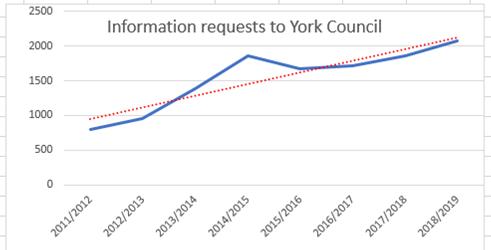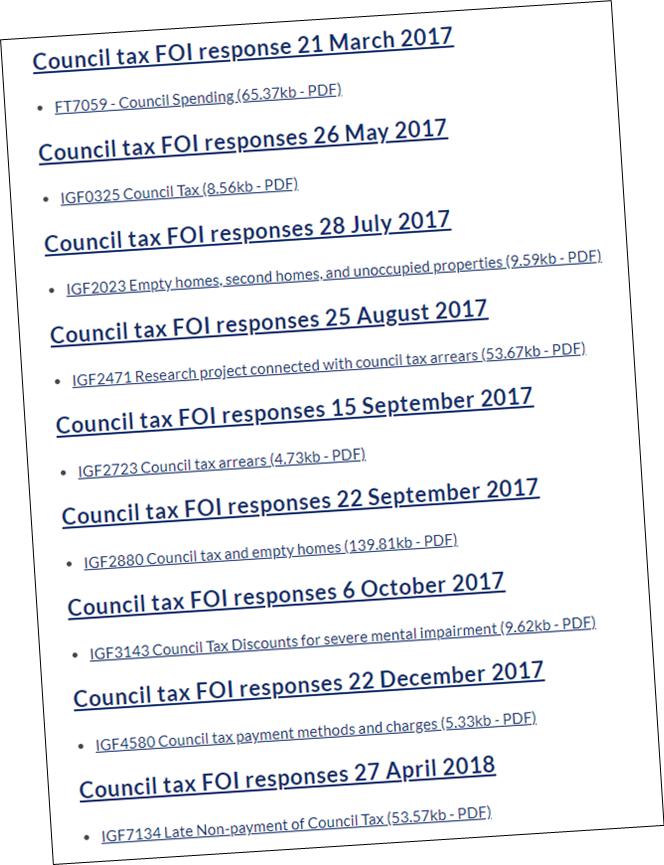The number of requests for information sent to the York Council last year hit a record high.
2068 Freedom of Information (FOI) and Environment Information Regulation (EIR) requests were lodged with the Council.

The applications were submitted using several different methods.
Some were simply Emailed to the Councils dedicated FOI email address (foi@york.gov.uk.) Such requests generated an automatic receipt.
Others used the independent web site “What do they know”. The monitoring of applications made from this site are semi automatic.
The Council also has its own “on line” recording system. This can be used by clicking this link At the moment this system, unlike “what do they know”, doesn’t provide users with a copy of their request nor does it produce a receipt even if a contact email address is provided. Users must make a note of a reference number which briefly appears on screen.
The Council claims that last year it answered 91% of requests for information within the target 20-day turn-round time.
Many of the requests do generate a further review as the Council fails to fully, or even partially, answer the information requests.
We think that if the Council was more open in its processes the cost of dealing with ad hoc requests for information would be greatly reduced.
NB. There has been no response from the York Council to a request for an explanation of why it ceased updating its FOI response lists last summer.


